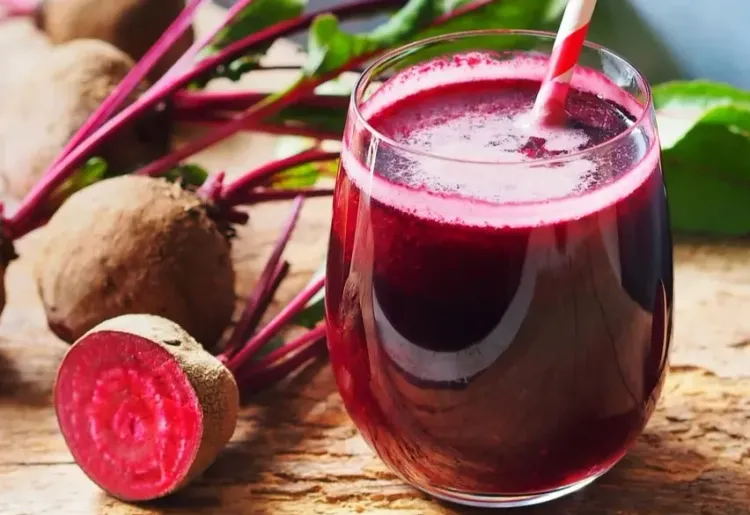Can Beetroot Juice Help Lower Blood Pressure in Seniors?

Synopsis
Key Takeaways
- Older adults may experience reduced blood pressure with beetroot juice.
- The study highlights changes in the oral microbiome as a reason for the effect.
- Nitrate-rich foods can benefit health, especially in seniors.
- Alternative sources of nitrates include spinach and kale.
- This research paves the way for further studies on dietary impacts on health.
New Delhi, July 23 (NationPress) A recent study suggests that older adults suffering from high blood pressure might find relief by consuming beetroot juice. This research, conducted by scientists at the University of Exeter in the UK, indicates that the blood pressure-lowering effects of beetroot juice, rich in nitrates, could be linked to changes in the oral microbiome of older individuals.
Nitrate plays a vital role in the body and is naturally obtained through a diet rich in vegetables.
During the study, older participants who consumed a concentrated beetroot juice shot twice daily for two weeks experienced a decline in their blood pressure. The younger group, however, did not show the same results, as highlighted in findings published in the journal Free Radical Biology and Medicine.
Professor Andy Jones from the University of Exeter remarked, “This study demonstrates that foods high in nitrates can modify the oral microbiome, potentially leading to reduced inflammation and lower blood pressure among older adults. It opens doors for larger studies to further investigate the role of lifestyle and biological sex in dietary nitrate responses.”
The research involved 39 adults under 30 and 36 seniors in their 60s and 70s, who spent two weeks consuming either nitrate-rich beetroot juice or a placebo without nitrates.
Notably, the older participants experienced a significant reduction in the harmful oral bacteria Prevotella after consuming the nitrate-rich juice, while beneficial bacteria like Neisseria increased.
The research team explained that an imbalance between harmful and beneficial oral bacteria may impede the conversion of dietary nitrates into nitric oxide, essential for healthy blood vessel function and blood pressure regulation.
“The good news is that if beetroot isn’t your preference, there are numerous nitrate-rich alternatives such as spinach, rocket, fennel, celery, and kale,” noted Professor Anni Vanhatalo from the university.









